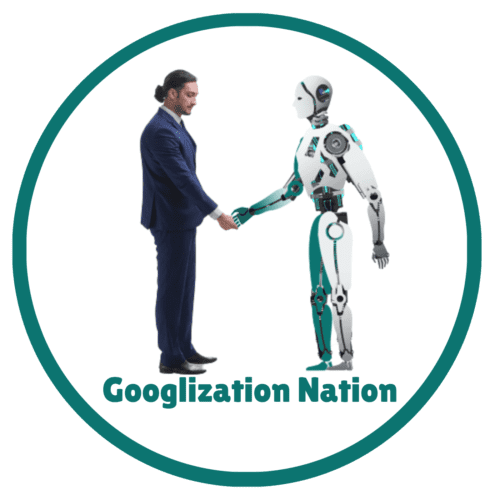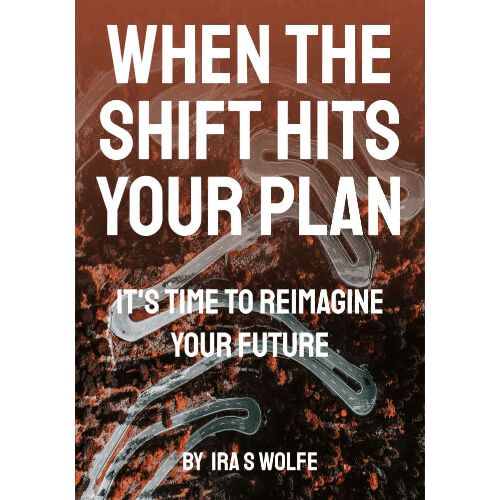Women in the Workplace, Diversity Hiring
Plus
Q&A about Pre-Employment Testing
Interviews with:
Georgene Huang, FairyGodBoss
Ira S Wolfe, Success Performance Solutions
Segment One – Georgene Huang
Georgene Huang is the founder of FairyGodBoss.com, the largest women’s career community in the world. On this podcast she reveals the challenges women face in the workplace, including women of color and women who fall into other minority categories. Why FairyGodBoss? Georgene explains a Fairy God Boss is anyone who elevates women in the workplace. The “shesession” facing the world today poses a unique problem for inclusion and diversity in the workplace, and Georgene talks about those issues and how companies can effectively address them.
Segment Two – Ira S Wolfe
Show Host and “Hire Authority” Ira Wolfe takes the reins in Segment Two, answering some of the most common questions pertaining to pre-employment testing, including its positive factors and some problems facing the decision to use pre-employment testing for your organization.
LISTEN, WATCH, SUBSCRIBE
Quotes
- The Largest Career Community for Women (9:57)
- A Company Born Out of Personal Misfortune (12:13)
- When Things Are Going Well…I’m Just Going to Ignore it Because Thinking About it Might Disadvantage Me (14:06)
- If You Had Four Final Candidates and One Was a Woman, Statistically, There Was a 0% Chance She Would Get Hired (16:05)
- You’re Seeing the Most Action Where It’s Most Visible (19:02)
- Companies Who Successfully Diversify “Treat [Diversity] Like a Business Problem” (21:17)
- Huang is “So Close to So Many Women’s Experiences, Not Much Surprises” Her (22:57)
- There is a Lot of Hope in My World (28:50)
- Is it Legal to Use Pre-employment Testing? (37:24)
- Is the Test “Not Relevant to the Job”? (42:20)
- Don’t Ask [Candidate] to “Complete an Assessment Before You’ve Had Any Engagement (45:14)
NOTE: Quote times may be +/- 30-60 seconds different for the audio version.
Podcast Notes
The Largest Career Community for Women (9:57)
Georgene Huang created the “largest career community for women.” On FairyGodBoss, women find an alternative to LinkedIn. They are encouraged to have open, candid conversations about real issues they face in the workplace. Because they can post anonymously, members can speak openly about fundamental topics they might otherwise be apprehensive about sharing publicly. Ira questions why, in 2021, we still have gender inequality in the workplace when that is something society has been facing for decades and supposedly solved through legislation like Civil Rights, Title IX, EEO, Lily Ledbetter Fair Pay, and others.
A Company Born Out of Personal Misfortune (12:13)
Huang, a first-time founder, says that FairyGodBoss was “born out of personal misfortune.” She found herself pregnant and unemployed due to a corporate “shake-up” (12:13). As she began to search for a new job, she started to feel uncomfortable being a woman in the workforce for the first time, wondering how her gender would impact her odds of acquiring new employment. In addition, she was afraid to ask potential employers about things like:
- How many women are on the company’s executive team?
- What is maternity leave like for the company?
- What is the “face-time” vs. the results-oriented culture of the company? These fears were born out of her apprehension of the company being run by a “good ole boy” network who did not care about or understand the needs of women in their organization.
When Things Are Going Well…I’m Just Going to Ignore it Because Thinking About it Might Disadvantage Me (14:06)
Before finding herself pregnant and unemployed, Huang never focused on gender in the workplace because there was no need. She was of the mindset that “when things are going well…I’m just going to ignore it because thinking about it might disadvantage me.” So why should she focus on it? Then her situation shifted, and so did her mindset.
If You Had Four Final Candidates and One Was a Woman, Statistically, There Was a 0% Chance She Would Get Hired (16:05)
In Huang’s case study called “State of Diversity Hiring,” she incorporates the Harvard Business Review’s study that revealed, “if you had four final candidates, and one was a woman, statistically, there was a 0% chance she would get hired.” The math does not add up. It’s the result of unconscious bias surrounding this “odd woman out.” Wolfe points out that one wonders if the female is simply the “token” to satisfy the requirements of diversity even if she was more qualified than the other three male candidates.
You’re Seeing the Most Action Where It’s Most Visible (19:02)
While 98% of companies say that diversity for women is a priority, putting it into practice is another story, and virtually all organizations fall short. Sixty-eight percent have no diversity plan! When asked what companies are most successful at diversity hiring, Huang says, “You’re seeing the most action where it’s most visible” – at the executive and board room levels. This is because companies are afraid of being “called out” for lack of diversity. But there is a lot of work to be done on the front-line and middle management.
Companies Who Successfully Diversify “Treat [Diversity] Like a Business Problem” (21:17)
While it seems easier to diversify at the top of a company or even the entry-level, women in the workplace seem to hit a road-block at mid-career. Huang says companies that should be looked upon as a model for diversity “treat this like a business problem.” These companies tend to pay attention to the outcome of the goals that they set involving diversity. Some specific steps these companies go through include:
- Taking a “systems approach” towards diversity
- They can’t set goals until they have measured, and these companies do that. In terms of diversity, they go beyond the visible and look for things like sexual orientation, disability, and veteran status.
- The look at HR data and analytics, using that information to try and better understand the applicant pool.
Huang is “So Close to So Many Women’s Experiences, Not Much Surprises” Her (22:57)
Wolfe asked what information in the FairyGodBoss survey surprised Huang the most. She replied, being “so close to so many women’s experiences, not much surprises her.” However, one thing that does stand out to her is that women of different color have different experiences in the workplace. Because the stress on women of color is so great, it is no doubt why they drop out at a much higher rate, proving that the disparity and massive inequity for women in the workforce must be rectified.
There is a Lot of Hope in My World (28:50)
Huang says that she is optimistic when she tries to look a year into the future of female diversity in corporate America. She says, “there’s a lot of hope in my world” (28:50). She says that she is hopeful because there are difficult discussions taking place at work in light of the George Floyd tragedy. According to Huang, a civil rights movement is currently taking place, and the complexity we see is necessary, but giving us an excellent place to start over.
Wolfe reminded us of the Golden Rule, but then suggests the Platinum Rule is better – to treat people the way THEY want to be treated. The Platinum Rule could more genuinely answer the problem of diversity that faces the workforce. Unfortunately, he also points out, this concept has been around for about three decades, and it still has not taken hold.
Is it Legal to Use Pre-employment Testing? (37:24)
One of the most frequently asked questions is “is it legal to use pre-employment testing?” (37:24) The Department of Labor discusses the proper uses of these tests and their legalities. Two significant factors in the lawful use of pre-employment testing lie around validity and reliability. The DOL in its Testing and Assessment Employer’s Guide list what is considered to be assessment for hiring. Surprising to many employers, it includes the application, reference checks, and interview questions. In other words, any tool used to screen and select employees is considered an assessment and each and every one of them has to be job -relevant too. Wolfe offered up the example of the job application. While a candidate’s address might be required to employ the candidate, one’s address isn’t job relevant and often introduces bias, even if unintentionally. Most problems that show up can be trace back to using an inappropriate test (testing for leadership skills when not required for a production job) or a test designed for medical purposes, such as the MMPI. Wolfe notes, that while it would be helpful for employers to know if the candidate has a mental illness that might interfere his or her work, tests used to diagnose clinical or mental disorders can’t be used for pre-screening.
Is the Test “Not Relevant to the Job”? (42:20)
Using a “not relevant to the job” pre-employment test introduces a massive risk for companies. Even if the test is valid and reliable and job-relevant, when the test is used and that it is used consisently. When used at the wrong time during the process, the company can “weed out” the protected classes. For example, Wolfe cited one company that had good intentions to identify front-line candidates with leadership potential to fill their management pipeline. The problem is that leadership skills weren’t required for the front-line job and the assessment inadvertently screened out too many minorities. The test was valid and reliable but because it wasn’t relevant to the job opening, they were sued and lost. But had they used the very same assessment after the candidate was hired to assess leadership potential, any risks would be mitigated.
Don’t Ask [Candidate] to “Complete an Assessment Before You’ve Had Any Engagement (45:14)
Asking candidates to complete an assessment before they have had any engagement (45:14) is not the right way to go. It is not illegal. It is just a terrible candidate experience. Having engagement (a phone call, text, or email) with a candidate, recognizing that you received the job application, and then inviting them to complete pre-hire assessments, results in a better experience and 90 percent and higher completion rates. For an optimal candidate experience, the assessment should take a reasonable amount of time to complete – 5 to 20 minutes for most jobs; 20 to 60 minutes meets minimal resistance for more professional and executive roles. Testing that requires 2 or 3 hours just doesn’t work in 2021 nor is it necessary.
WHERE TO WATCH OR LISTEN
The Geeks, Geezers & Googlization TV Show is live every Wednesday at 1 PM ET on Facebook, YouTube, Talk 4 TV, and broadcast on W4CY Radio, part of Talk 4 Radio on the Talk 4 Media Network. The podcast is also available on Talk 4 Podcasting.
Following the broadcast, the replay will be available at the same links for YouTube and Facebook, our podcast website Geeks Geezers Googlization, and on most podcasts including Apple Podcast, iHeart, Spotify, Amazon, Stitcher and more.








Thanks for sharing this insightful article. Gender diversity in the workplace is becoming a major factor in many ways, not only does it help new employees determine whether or not they want to work for the organization in question, but there are several other positive effects that organizations can take advantage of if they make gender diversity in the workplace a priority.